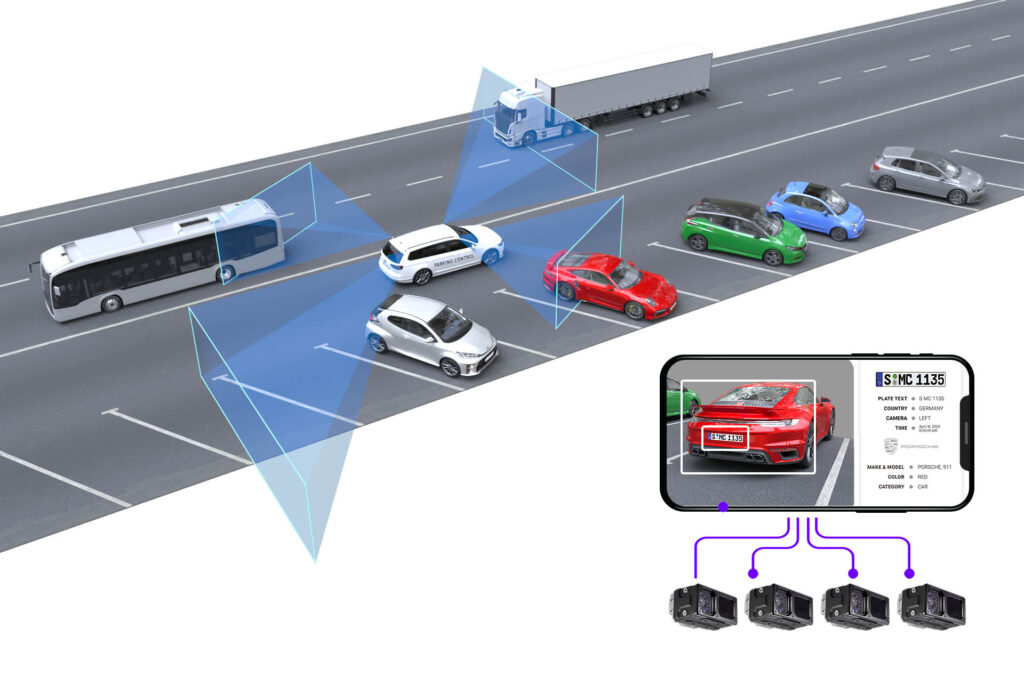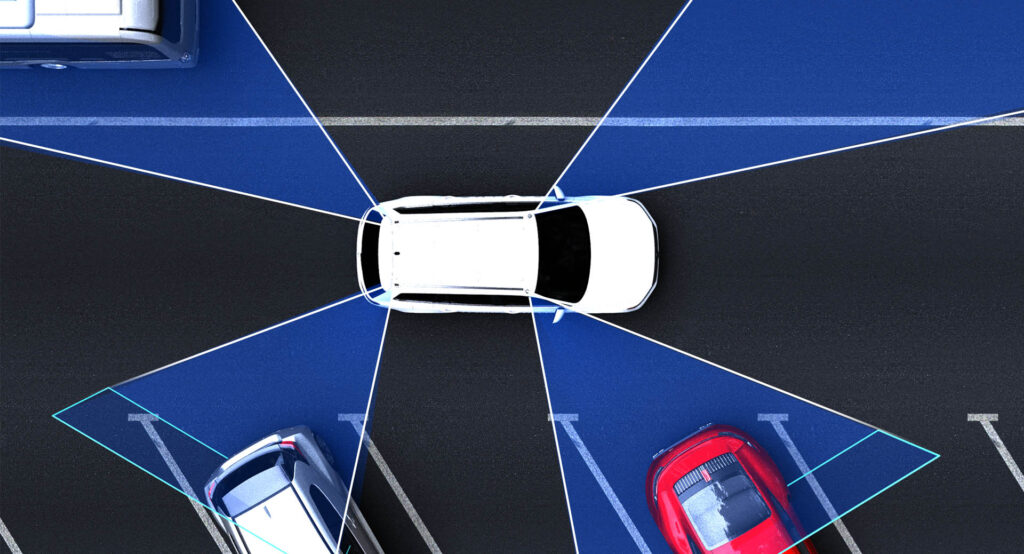The Challenges of Parking Enforcement: Staffing Needs, Poor Lighting, and Public Dissatisfaction
One of the primary challenges in parking enforcement is the lack of sufficient personnel and efficient technology. In many areas, traditional methods such as human patrols and manual ticketing are still prevalent. These methods are prone to errors, as enforcement officers are tasked with covering vast areas, often requiring hours of monitoring, ticketing, and paperwork. In larger urban environments, the sheer volume of work can lead to missed violations, leaving certain zones unmonitored. This not only results in significant financial losses but also contributes to an inefficient parking enforcement system overall.
The issue worsens in low-light conditions when limited visibility and reduced enforcement hours make it easier for violations to go unnoticed. This situation can lead to congested streets and obstructed emergency access. Unauthorized parking can also take up designated spaces for residents, worsening shortages and disrupting nighttime activities like cleaning, leading to urban inefficiencies.
Public dissatisfaction is a major concern in parking enforcement, often driven by unclear regulations, confusing signage, and perceived unfair fines. These factors can erode trust in the system, as users may feel that despite paying the required fees, they still can’t find available parking. To address this, it’s crucial to prevent parking abuse, such as overstays or unauthorized parking in designated spots, and implement effective parking enforcement technology, especially in high-demand areas like shopping malls, office buildings, and residential zones.
Public vs. Private Parking Enforcement: Unique Challenges, Shared Solutions
Both public and private parking enforcement come with distinct challenges. In public areas, municipalities must strike a balance between availability and utilization—keeping occupancy high enough to be profitable while ensuring drivers can still find a spot. However, enforcing regulations across large districts is difficult, with officers often stretched thin and unable to maintain consistent oversight.
To tackle these challenges, modern parking enforcement goes beyond just identifying violations. Mobile ANPR cameras and real-time monitoring solutions can detect violations, track traffic flow, and even analyze parking patterns to support better management strategies. These technologies not only ensure compliance but also help optimize occupancy rates, preventing both underutilization and excessive congestion.
Towing-enforced parking regulations provide an effective solution for combating unauthorized parking. The use of innovative mobile parking enforcement cameras can alleviate this issue as they can detect and address most violations in real time. Parking enforcement vehicles, mobile patrol units, and parking enforcement apps further enhance efficiency by assisting officers – whether on foot, electric scooters, or in vehicles – streamlining operations and ensuring more accurate, data-driven enforcement.
Example: For enforcement to be efficient and fees to be properly collected, patrols should return every 15 minutes to check their designated areas. This requires significant resources, especially if done manually by hundreds of foot patrol officers, each covering an approximate 500×500-meter area multiple times per shift. The process is time-consuming and costly, straining both manpower and budgets. A more efficient solution is the use of ANPR-equipped enforcement vehicles, which can scan plates in real time while covering large areas quickly, ensuring consistent monitoring with fewer resources.
With advanced enforcement tools like Adaptive Recognition’s Carmen® Mobile ANPR app and the Lynet mobile ANPR camera – especially with their new integration – cities and businesses can streamline operations, improve compliance, and create a more efficient parking system that benefits both drivers and administrators.
In private parking lots, such as those in shopping centers or business districts, the focus shifts to monitoring and ensuring proper fee collection. These areas require advanced technology to optimize space usage and quickly identify violators for ticketing. Solutions like license plate recognition (LPR) parking enforcement, and parking ticket enforcement technologies can greatly improve the process by ensuring quick, accurate identification of violators. For example, Adaptive Recognition’s Einar vehicle access control camera is designed for private parking lots—with or without barriers—offering bidirectional recognition and speed measurement, enhancing both security and efficiency in parking management.

The Role and Benefits of Technology in Parking Enforcement Automation
Technology is continuously reshaping parking enforcement, making it faster, more efficient, and less dependent on manual monitoring. Traditional parking enforcement solutions, such as foot patrols and manual ticketing, are being supplemented – or even replaced – by advanced technology that offers greater accuracy, efficiency, and scalability.
Innovative software and hardware technologies from Adaptive Recognition, like the compact Lynet mobile ANPR camera, enable real-time vehicle tracking and identification – even from a moving patrol car – significantly simplifying enforcement. Additionally, mobile applications like Carmen® Mobile further enhance enforcement by allowing officers to verify parking validity directly from their smartphones. Whether on foot, using an electric scooter, or in a vehicle, officers can smoothly track cars and manage violations seamlessly.
These technologies provide a seamless and efficient approach to parking enforcement, addressing many of the shortcomings of traditional methods. This modern approach brings a range of benefits, such as:
- Faster Violation Detection – Ensures parking infractions are identified and addressed in real-time, minimizing missed violations.
- Resource Optimization – Reduces the need for additional enforcement personnel by automating monitoring and ticketing.
- Improved Accuracy – Lowers the risk of human error, leading to fairer and more consistent enforcement.
- Cost Savings – Cuts operational expenses by streamlining enforcement processes and reducing reliance on manual patrols.
- Enhanced User Experience – Creates a more efficient and transparent system for both enforcement officers and the public.
- Seamless Integration – Works across public streets and private parking lots, ensuring comprehensive coverage.
Building on these advantages, the Carmen® Mobile ANPR app enhances parking enforcement with real-time license plate recognition and seamless violation management. The Lynet camera further strengthens enforcement in high-demand areas, ensuring greater efficiency.
Let’s take a closer look at how Lynet and Carmen® Mobile work together to transform parking enforcement.
Introducing Carmen® Mobile App for Parking Enforcement
Carmen® Mobile is a powerful tool that helps local parking enforcement officers complete their tasks faster and more efficiently. It reads license plates with exceptional accuracy, integrates seamlessly with third-party parking apps, and delivers instant results in real time—all from a smartphone or tablet. Carmen® Mobile enhances enforcement accuracy and significantly boosts efficiency, particularly for officers patrolling on foot, electric rollers, or in vehicles. A case study conducted in Budapest proved that the app can increase enforcement efficiency by up to three times.
However, its performance can be affected in low-light conditions, which may present challenges for nighttime enforcement, especially in poorly lit areas. While this isn’t a major issue in many cities where parking rules relax after certain hours, regulations vary by location. Some cities enforce parking 24/7, while others allow free parking in the evening.
Lynet, the Mobile ANPR Camera: A Powerful Tool for 24/7 Enforcement
The Lynet mobile ANPR camera is a powerful tool that captures license plates in real time, even while on the move in a patrol car. With cutting-edge ANPR technology, it quickly and accurately recognizes vehicle plates, making it invaluable for both public and private parking enforcement. The Lynet camera’s high-definition imaging and infrared capabilities allow it to excel in low-light conditions, ensuring effective nighttime enforcement. This guarantees that parking violations are detected regardless of lighting, providing municipalities and private operators with a scalable, efficient alternative to traditional methods. Additionally, Lynet can track wanted vehicles, further contributing to the safety of the city.
Compact and easy to install with a single PoE cable, the Lynet camera is one of the smallest and most versatile ANPR solutions, that greatly helps in optimizing parking enforcement. For large parking areas managed by government agencies or private organizations, it provides a comprehensive, automated solution that eliminates the need for foot patrols, reduces human error and enhances efficiency.
Unifying Forces: Lynet and Carmen® Mobile for Effortless Enforcement
Lynet’s capabilities are further enhanced with the integration to Carmen® Mobile, a solution that will allow real-time data access and processing directly in the field. Carmen® Mobile offers instant results, providing law enforcement and parking operators with immediate insights while on the go. With this integration, 4 Lynet cameras can be natively integrated into Carmen Mobile, thus enhancing the accuracy of parking enforcement even in low-light conditions.
This integration will enable even faster decision-making, allowing for more efficient parking enforcement. Whether it’s checking for parking violations, tracking wanted vehicles, or providing insights into parking patterns, Carmen® Mobile will streamline the enforcement process and maximize the effectiveness of the Lynet camera.
The Future of Smarter, Safer Cities with Automated Parking Enforcement
With ongoing urban and business growth, effective parking management is becoming increasingly essential. Manual enforcement, resource constraints, and nighttime visibility challenges are no longer barriers, thanks to innovations like the Carmen® Mobile ANPR app and the Lynet mobile ANPR camera. These technologies provide the tools needed to automate and optimize enforcement, ensuring that violations are detected and addressed quickly and accurately.

Automated solutions enable cities and private operators to streamline enforcement, cut costs, and ensure a fairer system for everyone. Real-time monitoring and AI-powered recognition will maximize parking space utilization, minimize disputes, and improve urban mobility. With fewer delays and better compliance, drivers will experience less frustration, and enforcement teams can focus on more pressing tasks.
Beyond efficiency, automated parking enforcement contributes to a safer and more sustainable future. Integrated with broader smart city initiatives, these technologies enhance security, track stolen vehicles, and support better traffic flow.
The result? A future where parking is seamlessly managed, improving daily life in cities that are smarter, more connected, and built for the needs of tomorrow.
FAQ – Frequently Asked Questions about Parking Enforcement
Are private parking tickets enforceable?
Private parking tickets are indeed enforceable, although the mechanisms differ from public or municipal enforcement. Enforcement within privately managed parking facilities is typically governed by contractual agreements and local regulations, and may involve a combination of access control, surveillance, and legal follow-up procedures.
In barrier-controlled environments, enforcement is inherently more efficient. These systems utilize technologies such as automatic number plate recognition (ANPR) to record entry and exit events, enabling precise calculation of parking duration. Vehicles are permitted to exit only after payment is completed, with the barrier system acting as a physical enforcement tool. In cases of non-payment, additional measures such as delayed exit penalties, lockout mechanisms, or administrative fees may be applied.
For open-access or free-flow parking lots—where no physical entry or exit barriers are present—the enforcement model relies on advanced surveillance systems. ANPR (also known as license plate recognition or LPR) cameras monitor vehicles upon entry and exit, automatically calculating overstays or unauthorized use. These systems integrate with back-office platforms that can issue penalty notices, generate automated alerts, or escalate violations to third-party debt recovery services if required.
By leveraging intelligent recognition technologies such as ANPR, private operators can ensure accurate, efficient, and scalable enforcement even in complex, high-traffic environments.
How does parking enforcement know how long you’ve been parked?
Parking duration is typically monitored through automated systems that integrate vehicle detection and identification technologies. In modern parking environments, automatic number plate recognition (ANPR) plays a central role. High-precision ANPR cameras capture license plate data at entry and exit points, enabling precise calculation of parking sessions based on timestamped recognition events.
In controlled-access facilities, ANPR is often combined with barrier systems and payment kiosks or digital interfaces, allowing for real-time enforcement and transaction logging. In free-flow or open-lot configurations, ANPR units may operate in conjunction with ground sensors or time-based algorithms to monitor dwell times and detect overstays.
These systems often feed into a centralized backend or cloud-based enforcement platform, which can cross-reference plate data with digital permits, payment systems, or mobile parking apps. This integration allows for automated alerts, ticket issuance, or escalation to enforcement workflows—minimizing manual intervention and improving operational efficiency.
By leveraging ANPR and data-driven enforcement tools, operators gain a scalable and highly accurate method of tracking parking duration across diverse environments.

